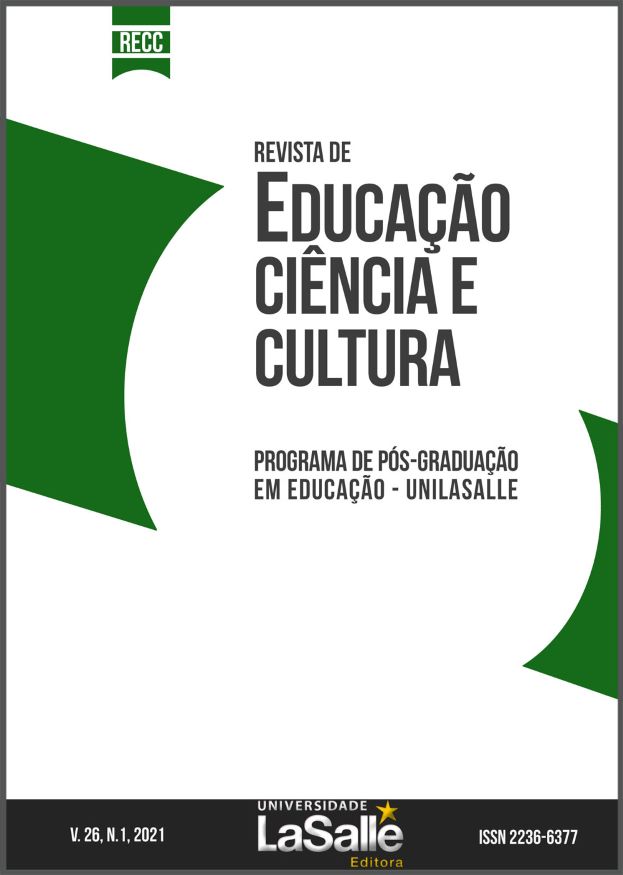In/Exclusion Processes: Trajectories, Tensions and Challenges of the Deaf Education in Chapecó/SC
DOI:
https://doi.org/10.18316/recc.v26i1.7516Keywords:
Inclusive Education, Santa Catarina, Educational Policies.Abstract
The present work has as theme Deaf Education. In order to know the trajectory of Deaf Education in the city of Chapecó/SC. It is characterized by a qualitative approach and initially starts from a bibliographic analysis of theses and dissertations of the BDTD of the IBICT. The Focal Group presents itself as the main methodological strategy for structuring research and building data for analysis. The research subjects are listening to teachers who worked in the public education system, in Deaf Education, and who actively participated in the construction/development of policies aimed at this modality of teaching. As a result, it was found that the historical processes are not far from actions taken at the national and world level, such as the emphases of the three philosophies (orality, total communication, and bilingualism). Also noteworthy is the emergence of resuming discussions for a National Bilingual Education Policy, for the construction of an inclusive bilingual school, which receives all students, respects the linguistic rights of the deaf, and that the processes of teaching and learn.
Downloads
Published
Issue
Section
License
Authors must submit their manuscripts to be published in this journal agree with the following terms:Authors maintain the copy rights and concede to the journal the right of first publication, with the paper simultaneously licensed under the License Creative Commons attribution that permits the sharing of the paper with recognition of authorship and initial publication in this journal.
Since the articles are presented in this journal of public access, they are of free use, with their own attributions for educational and non-commercial purposes.
The Periodic Journal of Education, Science and Culture in http://www.revistas.unilasalle.edu.br/index.php/Educacao was licensed with a Creative Commons - Attribution - Noncommercial 3.0 Not Adapted.


